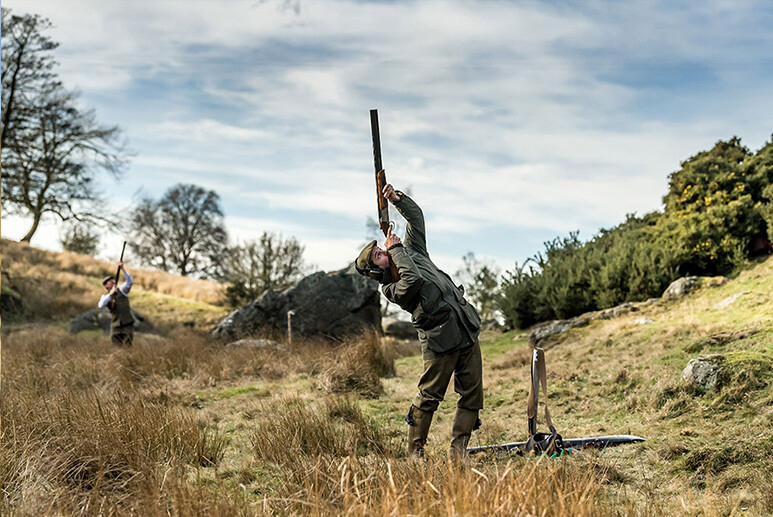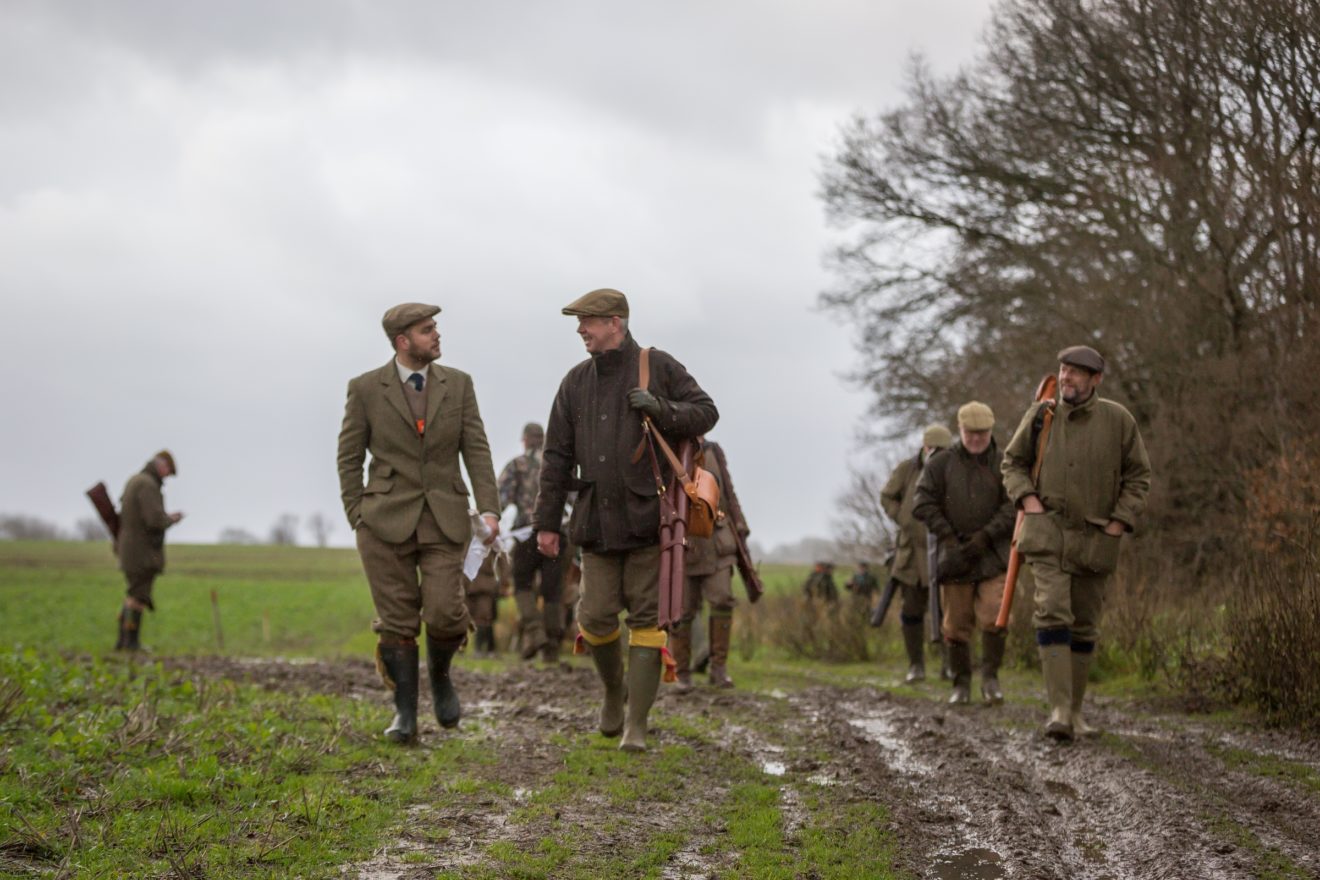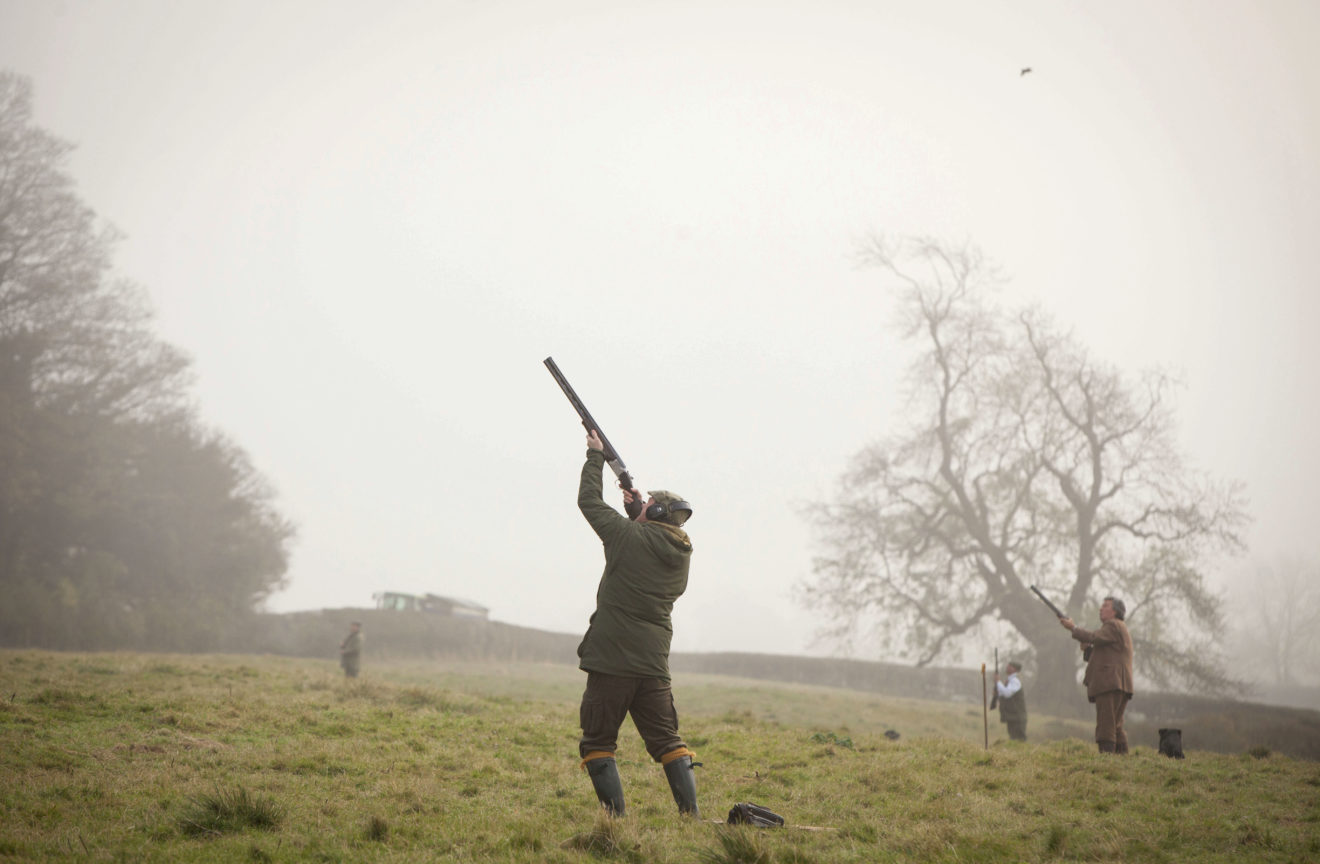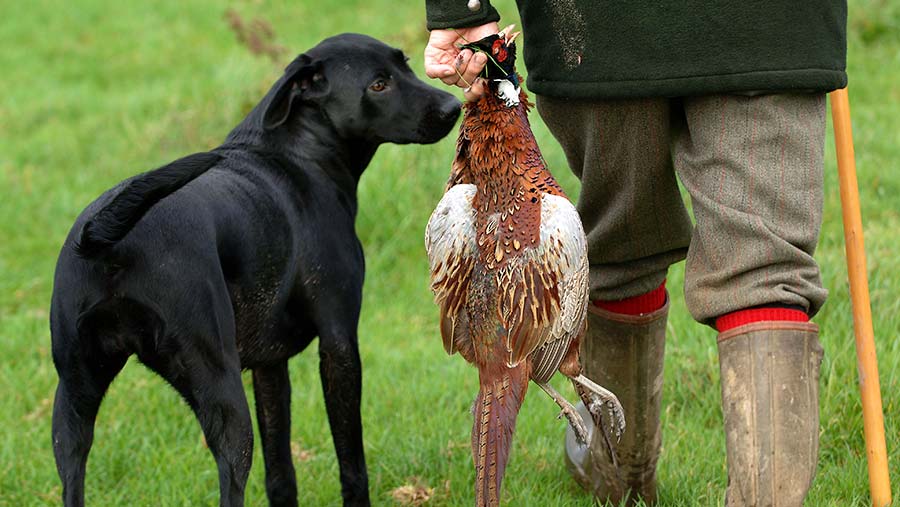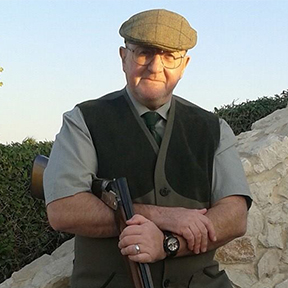A Brief Guide to Sporting Etiquette for Driven Game (Wing) Shooting in Great Britain
I am often asked about the correct etiquette for a British driven shoot, so here is a guide I wrote some while back for new Guns. As with any social and sporting endeavor, there are a set of guidelines and proper behavior associated with driven shooting. As with any etiquette, it helps everyone know what to expect and what is expected of them. The basic guide for field etiquette is: Be Safe and Be Sporting.
One thing to keep in mind is the effort that precedes your arrival. The head gamekeeper and his team will have spent the best part of the year building up to your shoot, at times working 18 hours a day, seven days a week to prepare. If you have the chance, take the opportunity to thank the keeper and his team for their hard work on the day of the shoot.
The Invitation
Regardless of the formality of the invitation, you should try to respond as quickly as possible and in writing, if you can. As you might expect, there are many logistics to arrange in putting a team together. Thus, the sooner you let your host know whether you can attend, the better. If you accept, you should only cancel in case of an emergency.
It is common to return the kindness of the invitation in the future. Even if you can’t host a day’s shooting, reciprocate in some way.
What to Wear
It is important to come prepared and dressed for the shoot. Each shoot is different, but it is best to bring clothing that will keep you comfortable, warm, and dry. For our fellow American hunters, traditional driven shooting attire should not be confused with duck hunting gear. Tweeds, wools, and earthen colors are expected, and you should avoid bright colors that will flare the birds. Blaze orange is required for upland or walk-up hunting but should be avoided on a driven shoot as the birds flying overhead can see it and will quickly divert their course. Absolutely NO camo.
In addition to considering the weather, make sure that you can comfortably mount your gun and that you are not impeded by what you are going to wear.
A traditional tweed shooting suit usually consists of the following: breeks, long socks with flashes, shooting vest, sport jacket, and a field coat or other outerwear. Additionally, matching or coordinating trousers are acceptable. You certainly don’t have to wear all of this, but if you are asked to dress traditionally, consider what you pack. You should also ask your host how formal dinners will be. On some English and Scottish estates, you are expected to wear black tie.
Sportsmanship
Safety is the cornerstone of good sportsmanship and should always be your No. 1 priority. Nothing will get you banned from an estate, or not asked back, faster than poor gun handling or, god forbid, an accident. Always keep in mind what the beaters and gamekeepers might see from their perspective.
Good sportsmanship means following a few rules. Commonly it is considered very bad form to shoot a low bird or to poach a bird that would be considered your neighbor’s. If you are a skilled shot, be generous and let a few birds fly over your neighbor.
Know your ability. Don’t shoot a bird that is out of your range as you may only cripple the bird. If you think you have fallen a wounded bird, make a mental note so you can mention it to the dog handlers.
Additionally, you shouldn’t shoot a bird a close range. “Pillow-casing” a bird will garner sideways looks, particularly on English estates that sell the shot game to a game dealer.
Aim for good, clean kills. If you are having an off day, stay positive. Of note, it is commonly thought of as unsporting to ask how many birds your fellow gun took in a drive, or to boast of being on a truly hot streak.
Safety
As I mentioned before, safety should always be first in mind. Good gun handling and diligent mindfulness will benefit all. Listen carefully to the shoot captain for all instructions. Always carry your gun in a slip between drives as well as to and from any vehicle. You should break the gun before completely removing it from the slip.
If the gun is not in a slip, break the gun to show everyone it is safe. When the gun is closed, it should always be pointed in a safe direction. Never point a closed gun – loaded or unloaded – at anyone. This includes the beating line – your barrel should never be in the zone of the beating team. This includes where the beating line has been, as you are never sure that there isn’t a stopper or blocker still in the area.
Give the birds ample time to clear the ridges or treetops to ensure that there is 360-degrees of sky behind the bird. If you have any doubt, don’t shoot. There will be another opportunity, but you can never take a shot back.
Picking Up
If you bring your dog, be certain that the dog can behave on the peg without distracting you or other guns. Once the drive is over, you can help the dog team pick up the downed game. You can politely ask a handler if there is an area that may need additional picking. At some estates, you are expected to have marked your birds downed to help guide the picking team.
Always carry the game by the head, not the feet, and treat the quarry with respect. In England and Europe, most estates sell the game, so treat it carefully so as not to bruise the meat.
Keepers Tips
It is customary to tip those who made the day, especially the Head Keeper. You should also look after your loader as he has looked after you all day. Ask your host what he recommends for a gratuity.
GENERAL INFORMATION
- Make sure you have either a leather or a canvas gun case or slip for your gun.
- Check with your host or the head gamekeeper to see if you need to bring cartridges.
- Ear protection and safety glasses are vital.
- Gloves are not essential but usually necessary in cold weather. Make sure they are thin leather so they don’t interfere with the trigger pull.
- Always be on time.
- Make sure you keep your gun broken when not shooting.
- Don’t attempt to shoot a bird that is very low or with no sky behind it. It is not safe or sporting to do so.
- Shoot to kill, not wound, a bird.
- Keep phones turned off, but if absolutely necessary to use, do so discreetly and only when safe to do so.
- Never swing your gun along the line of shooters, loaded or unloaded.
- Pick up spent cartridges after each drive.
- It is not acceptable to be a complainer or a show-off.
The one most important thing to remember is that a guest shooter is always judged by how safe a shot they are, not how good a shot they are!
Keith’s coaching lineage descends directly from the definitive knowledge of the legendary Robert Churchill. Considered as one of the United Kingdoms’ most traditionally trained and experienced professional shooting instructors. He is formally recognized by some of the most prestigious gun makers of Europe, the UK and the U.S.A. including Krieghof, Caesar Guerini, Fausti and Grulla Armas. A highly experienced Shoot Captain, Keith managed the inaugural season of the 4,500 acre Dunira Sporting Estate, Comrie, Perthshire, Scotland. He learned his trade from the very best. Working for and mentored by the renowned Chris Craddock, Roger Silcox & Sam Grice. Three of the United Kingdoms’ most respected Shooting Guardians. For Keith, coaching is a passion as well as a profession. It is his intention to give shotgun enthusiasts the enjoyment and satisfaction that comes from shooting well.

